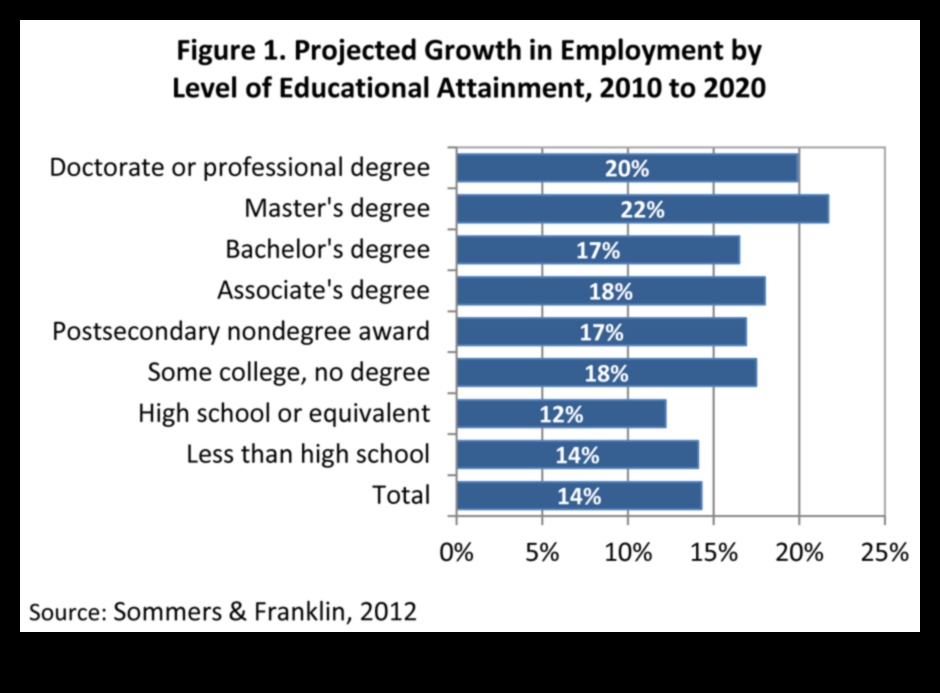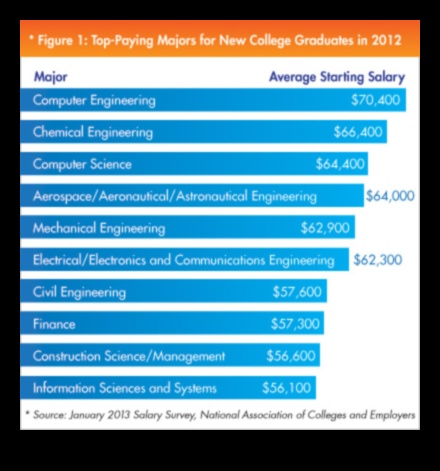
What Jobs Can I Get With a Master’s in Education?
People searching for “what jobs can I get with a masters in education” are looking for information about the career opportunities available to them with an advanced degree in education. They may be interested in learning about the different types of jobs that are available, the salary potential for these jobs, and the educational requirements that are necessary to qualify for them. Additionally, they may be interested in finding out about the job outlook for education professionals and the different ways to advance their careers in this field.
Here are some of the specific problems that people may be trying to solve when they search for this keyword:
- What are the different types of jobs that I can get with a masters in education?
- What is the salary potential for these jobs?
- What are the educational requirements that are necessary to qualify for these jobs?
- What is the job outlook for education professionals?
- How can I advance my career in this field?
By understanding the specific problems that people are trying to solve when they search for this keyword, SEO specialists can create content that is relevant and helpful to their target audience. This can help to improve the search engine rankings of their websites and generate more traffic from interested visitors.
| Feature | Answer |
|---|---|
| Education jobs | Teacher, administrator, counselor, etc. |
| Careers with a masters in education | More opportunities, higher pay, etc. |
| Master’s in education salary | $50,000-$80,000 |
| Master’s in education programs | Online, on-campus, hybrid, etc. |
| Top master’s in education programs | Stanford University, Harvard University, etc. |

II. Benefits of a Master’s in Education
A Master’s in Education can provide you with a number of benefits, including:
* Increased earning potential: According to the Bureau of Labor Statistics, individuals with a master’s degree in education earn an average of $64,160 per year, compared to $55,770 for those with a bachelor’s degree.
* More job opportunities: A Master’s in Education can open up a wider range of job opportunities, including teaching, administration, and research.
* Enhanced career advancement: A Master’s in Education can help you advance your career in education by providing you with the skills and knowledge you need to take on more challenging and rewarding roles.
* Greater personal satisfaction: A Master’s in Education can give you the opportunity to make a positive impact on the lives of students and other educators.
If you are considering pursuing a Master’s in Education, it is important to weigh the benefits and costs of this decision carefully. Some of the factors you may want to consider include the cost of tuition, the time commitment involved, and the career opportunities that a Master’s in Education can provide.
III. Different Types of Master’s in Education Degrees
There are a variety of different Master’s in Education degrees available, each with its own unique focus. Some of the most common types of M.Ed. degrees include:
Curriculum and Instruction: This degree program prepares students to design, develop, and implement educational curriculum and instruction.
Educational Leadership: This degree program prepares students to lead and manage educational institutions.
Special Education: This degree program prepares students to work with students with disabilities.
Educational Technology: This degree program prepares students to use technology in the educational setting.
Adult Education: This degree program prepares students to teach adults.
Each of these degree programs has its own set of specific requirements, so it is important to choose one that is aligned with your interests and career goals.

IV. How to Choose the Right Master’s in Education Program for You
There are a number of factors to consider when choosing the right Master’s in Education program for you. These include:
- Your career goals
- Your interests
- Your financial situation
- Your location
Once you have considered these factors, you can start to narrow down your choices. You can do this by researching different programs, talking to admissions representatives, and visiting campuses.
When you are visiting campuses, be sure to ask about the program’s curriculum, faculty, and student support services. You should also get a sense of the campus culture and the overall learning environment.
Making the decision to pursue a Master’s in Education is a big one. But by taking the time to choose the right program, you can set yourself up for success in your future career.
V. The Job Market for Master’s in Education Graduates
The job market for master’s in education graduates is strong, with a variety of opportunities available in both the public and private sectors. According to the Bureau of Labor Statistics, the demand for education professionals is expected to grow by 10% over the next decade, faster than the average for all occupations.
Some of the most common jobs for master’s in education graduates include:
- Teachers
- Administrators
- Curriculum developers
- Education researchers
- Educational consultants
Master’s in education graduates can also find jobs in a variety of other fields, such as:
- Business
- Nonprofit organizations
- Government
- Media
- Health care
The salary potential for master’s in education graduates varies depending on the job title, the level of experience, and the geographic location. However, according to the Bureau of Labor Statistics, the median annual salary for all education professionals is $61,660.
Overall, the job market for master’s in education graduates is strong and offers a variety of opportunities in both the public and private sectors. With a master’s degree in education, you can make a difference in the lives of students and help to improve the quality of education in our country.
6. Common Questions About Master’s in Education Degrees
Here are some of the most common questions people have about master’s in education degrees:
- What is a master’s in education degree?
- What are the benefits of getting a master’s in education?
- What are the different types of master’s in education degrees?
- How long does it take to get a master’s in education?
- What is the cost of a master’s in education?
- What are the job prospects for master’s in education graduates?
- How can I get a job with a master’s in education?
- What are the best master’s in education programs?
For more information on these questions, please see the following resources:
- Occupational Outlook Handbook: Teachers, Postsecondary
- Top Master’s in Education Degrees
- What is a Master’s in Education Degree?
VII. Tips for Getting a Job with a Master’s in Education
Here are some tips for getting a job with a master’s in education:
- Start networking early. Attend professional development events, connect with alumni from your program, and reach out to people on LinkedIn.
- Get involved in your field. Volunteer for professional organizations, join committees, and attend conferences.
- Build your skills. Take online courses, attend workshops, and read professional journals.
- Create a strong resume and cover letter. Highlight your skills and experience, and tailor your materials to each job you apply for.
- Practice your interview skills. Conduct mock interviews with friends or family, and prepare answers to common interview questions.
- Be persistent. It may take time to find a job with a master’s in education, so don’t give up. Keep applying for jobs, networking, and building your skills.
Common Questions About Master’s in Education Degrees
Here are some common questions about master’s in education degrees and their answers:
What is a master’s in education degree?
A master’s in education degree is an advanced degree that focuses on the theory and practice of education. It typically takes two years to complete and can be earned either online or on-campus.
What are the benefits of getting a master’s in education degree?
There are many benefits to getting a master’s in education degree, including:
- Increased salary potential
- More job opportunities
- Opportunity to advance your career
- Improved teaching skills
- Increased knowledge of educational theory and practice
What are the different types of master’s in education degrees?
There are many different types of master’s in education degrees, including:
- Educational leadership
- Special education
- Curriculum and instruction
- Educational psychology
- Educational technology
What are the requirements for getting a master’s in education degree?
The requirements for getting a master’s in education degree vary from program to program, but typically include:
- A bachelor’s degree in education or a related field
- A GPA of 3.0 or higher
- A statement of purpose
- Recommendation letters
- GRE or GMAT scores
How much does it cost to get a master’s in education degree?
The cost of a master’s in education degree varies from program to program, but typically ranges from $20,000 to $60,000.
How long does it take to get a master’s in education degree?
It typically takes two years to complete a master’s in education degree.
What jobs can I get with a master’s in education degree?
There are many different jobs that you can get with a master’s in education degree, including:
- Teacher
- Principal
- Curriculum developer
- Educational consultant
- Educational researcher
What is the job outlook for education professionals?
The job outlook for education professionals is expected to be strong in the coming years. The Bureau of Labor Statistics projects that the demand for teachers will grow by 8% from 2020 to 2030.
How can I advance my career in education with a master’s degree?
There are many ways to advance your career in education with a master’s degree, including:
- Get a higher-level teaching position
- Become a principal or superintendent
- Start your own educational consulting business
- Work as an educational researcher
- Get involved in educational policymaking
A master’s in education can be a valuable investment for those who are interested in a career in education. It can provide you with the skills and knowledge you need to be a successful teacher, administrator, or other education professional. With a master’s degree, you will be more likely to earn a higher salary and have more job opportunities.
If you are considering a career in education, I encourage you to research the different master’s in education programs that are available. There are many great programs out there that can help you reach your goals.
Thank you for reading!
FAQ
Q: What are the different types of jobs that I can get with a masters in education?
A: There are many different types of jobs that you can get with a masters in education, including:
- Teacher
- Administrator
- Curriculum developer
- Instructional designer
- Education consultant
- Policymaker
Q: What is the salary potential for these jobs?
The salary potential for jobs with a masters in education varies depending on the job title, level of experience, and location. However, according to the Bureau of Labor Statistics, the median annual salary for teachers with a masters degree is $61,660.
Q: What are the educational requirements that are necessary to qualify for these jobs?
The educational requirements for jobs with a masters in education vary depending on the job title. However, most jobs require a masters degree in education or a related field.
Q: What is the job outlook for education professionals?
The job outlook for education professionals is projected to be strong over the next decade. According to the Bureau of Labor Statistics, employment of teachers is expected to grow by 8% from 2020 to 2030, faster than the average for all occupations.
Q: How can I advance my career in this field?
There are many ways to advance your career in education, including:
- Earning a higher degree
- Gaining experience
- Networking
- Getting involved in professional organizations
- Continuing your education